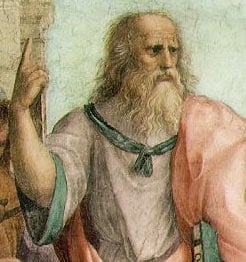by Hannah Baker, Class Nine Integrated Humanities Teacher
Last July I had the privilege of attending the Wheatstone Conference in southern California, A Noble Risk. To try to give an all encompassing overview of Wheatstone would take more time and more words than desirable in this blog article. But, for a brief synopsis: Wheatstone is a one-week conference aimed at awakening in its participants the love of beauty and instilling the desire to pursue knowledge. The media used to create this effect are varied but included art, theatre, music, lectures, and, above all, reading and discussing one of Plato’s dialogues in small groups. This year the chosen dialogue was Phaedo (read it online).
I knew very little about the nature of this beast before I boarded the plane for Los Angeles. It sounded a bit like academic camp, and since I was following the educator track I expected it to be a week of observation and skills-based training. I hoped to walk away with some basic survival tools for leading a two-hour discussion with ninth graders.
However, instead of observing a student discussion and copying down techniques to help me in the coming school year, I found myself placed in a small group and expected to discuss the text with fellow educators. Now, I had read Phaedo on the plane, and had thought I understood it well enough to survive the week. I was wrong. The first hour of discussion left me feeling hopelessly lost, ignorant, and incapable of teaching the humanities seminar in the fall. It wasn’t that I had failed to grasp the basic argument that Socrates was posing, but rather that I had failed to ask any questions about that argument before blundering forward.
We have all heard the expression, “Be careful what you wish for, because you just might get it.” Well, the realization that I had failed to read Plato with even a modicum of careful thought was an example of just how unpleasant this statement can be. Since graduating from college, I had experienced an intellectual wasteland. I lacked a community to challenge me on my reading and thinking, and had therefore grown lazy. Part of what drew me to apply to Clapham was a desire for an intellectual reawakening such as teaching the Upper School Humanities Seminar and being with the Clapham staff could provide. That Plato discussion applied this wake-up call with a little more force than I expected.
Being jolted awake at 6 am is not a pleasant experience, and neither was this wake-up call; but though difficult, it was infinitely valuable. True, it was humbling to realize just how little of the text I had grasped. Yet, it was also inspiring to find that there was so much more in this text than I had ever imagined. It was so rewarding to be with a group of people who were willing to discuss and grapple with a text for hours on end for no other purpose than that it was a text worth understanding.
In the end, Wheatstone was the just the jumpstart I needed, not only for my mind but also for my passions. The experience reminded me that a good discussion is worth its weight in gold, that the ancient texts are still very much alive, and that the pursuit of knowledge for knowledge’s sake still exists. Wheatstone did not provide a class in which I learned how to lead a discussion. Instead it taught by example, reminding me what a true discussion looks like, and thereby giving me a standard to strive for in my classroom.

